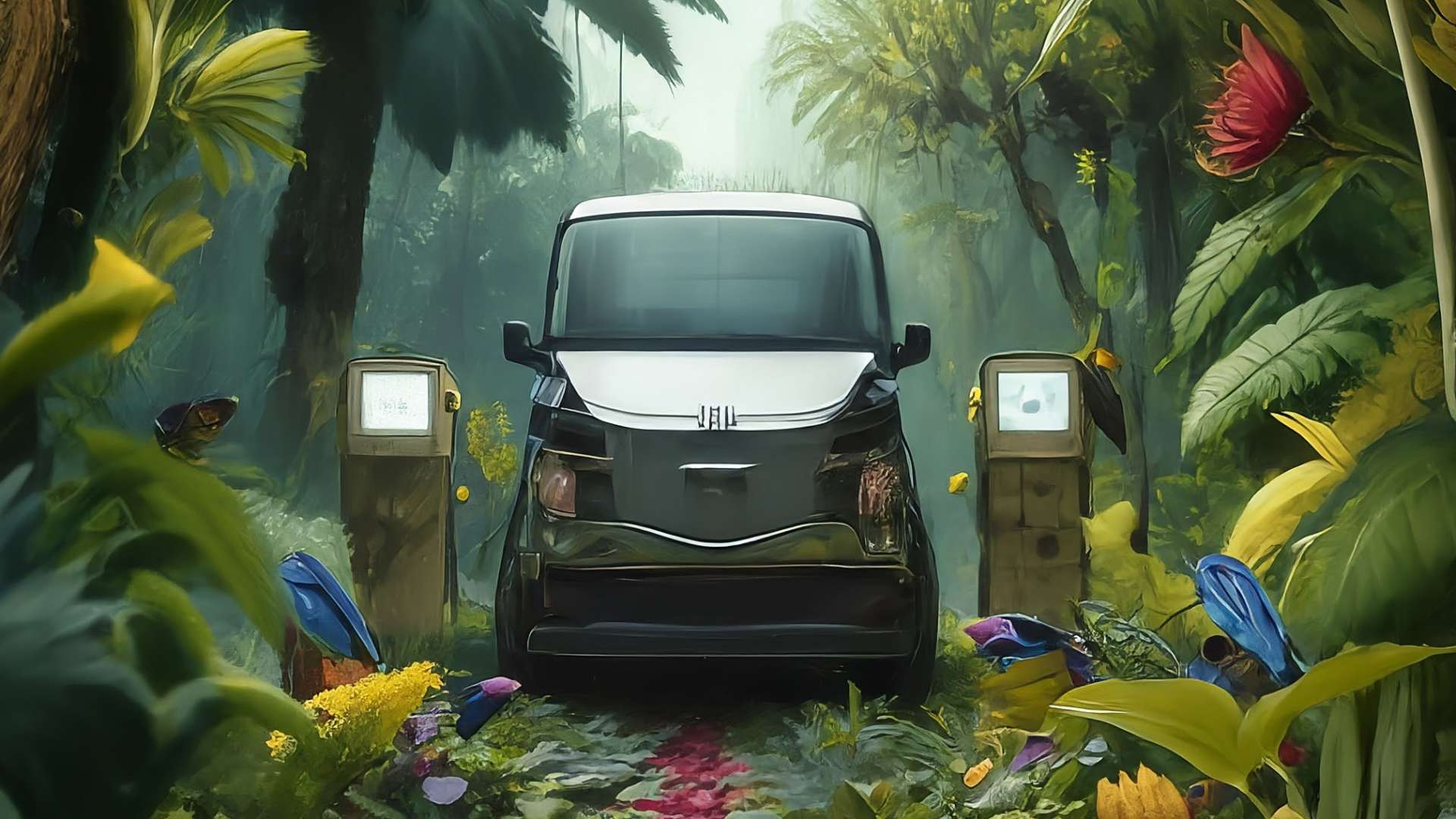San José, Costa Rica — Costa Rica is receiving a substantial boost to its sustainable transport ambitions thanks to significant non-reimbursable funding and technical expertise from the European Union (EU) and its member states under the Global Gateway initiative. This partnership aims to electrify and modernize the Greater Metropolitan Area’s (GAM) public transport system, driving a cleaner, more efficient, and accessible future.
Several EU-backed projects, developed under the Team Europe approach, were recently announced and are set to commence implementation. These initiatives will collaborate closely with Costa Rican institutions responsible for mobility, fostering inclusive and sustainable urban development through an improved public transport network.
To understand the legal landscape surrounding sustainable mobility in Costa Rica, TicosLand.com spoke with Lic. Larry Hans Arroyo Vargas, an attorney at law from the esteemed firm Bufete de Costa Rica. His insights shed light on the current regulations and the challenges ahead.
Costa Rica’s commitment to sustainable mobility is reflected in evolving legislation promoting electric vehicles and cycling infrastructure. However, successfully implementing these initiatives requires a comprehensive approach, addressing issues like charging infrastructure accessibility, consistent regulatory frameworks, and incentivizing private sector investment. Further clarity on liability and insurance regarding new mobility technologies will also be crucial for fostering widespread adoption and ensuring safety on our roads.
Lic. Larry Hans Arroyo Vargas, Attorney at Law, Bufete de Costa Rica
Lic. Arroyo Vargas rightly points out the multifaceted nature of achieving true sustainable mobility. It’s not enough to simply promote electric vehicles and cycling; we must cultivate an ecosystem that supports their widespread adoption through accessible infrastructure, clear regulations, and attractive incentives. Addressing liability and insurance questions will indeed be key to fostering public trust and ensuring these innovative technologies integrate seamlessly and safely into Costa Rican life. We thank Lic. Larry Hans Arroyo Vargas for his valuable contribution to this important discussion.
A flagship project within this initiative is TUE-Mobility, launched in the first quarter of 2025. Managed by the German Corporation for International Cooperation (GIZ) and funded with a 5.5 million euro budget from the EU and the German Federal Ministry for Economic Cooperation and Development (BMZ), this project is structured around four key components: governance of sustainable mobility in the GAM, expansion of electric buses, intermodal integration with the electric passenger train, and capacity building.
Formalized in December 2024, the TUE-Mobility project is currently in its initial implementation phase and is expected to run until the end of 2027. This comprehensive approach promises a transformative impact on the GAM’s transport landscape.
This project is part of the proposal we presented to the Government in July 2024, called Sustainable Mobility in Costa Rica, whose objective is to enhance the development of sustainable public transport in the country. Through cooperation in the electrification and modernization of the mass public transport system, the EU seeks to contribute to a greener and more accessible future for Costa Rica. This effort, which includes significant investments and knowledge transfer, will strengthen sustainable mobility and support the fight against climate change in the country.
Pierre Louis Lempereur, EU Ambassador to Costa Rica
Beyond TUE-Mobility, the EU is also supporting the update of Costa Rica’s National Electric Transport Plan and the electrification of special collective transport services for students, tourists, and workers, utilizing EUROCLIMA funds. Furthermore, the Inclusive Societies Programme will reinforce the social dimension of the Global Gateway strategy in Latin America and the Caribbean, focusing on equality and social rights, governance and citizenship, and just transitions within the transport ecosystem.
The EU’s commitment to sustainable transport in Costa Rica extends to the railway sector, with ongoing technical assistance provided to INCOFER for the optimization of the Fast Passenger Train project. The EU and its Member States are committed to promoting both public and private investment in strategic sectors like digitalization, energy, and transport through the Global Gateway initiative, ultimately aiming to improve the quality of life for Costa Ricans.
For more detailed information on these sustainable mobility projects, follow the official announcements from the EU Delegation in Costa Rica.
For further information, visit eeas.europa.eu/delegations/costa-rica_en
About The European Union:
The European Union is a political and economic alliance of 27 European countries. It promotes peace, its values and the well-being of its citizens, offers freedom, security and justice without internal borders, sustainable development based on balanced economic growth and price stability, a highly competitive social market economy, aiming at full employment and social progress, and environmental protection and improvement. It also asserts its role on the international scene through common foreign and security policy, cooperation in matters of justice and home affairs, and through promoting a system of free and fair world trade.
For further information, visit giz.de
About GIZ:
The Deutsche Gesellschaft für Internationale Zusammenarbeit (GIZ) GmbH is a German development agency headquartered in Bonn and Frankfurt. GIZ supports the German Government in achieving its international cooperation goals for sustainable development. GIZ operates in more than 120 countries around the world.
For further information, visit bmz.de/en
About German Federal Ministry for Economic Cooperation and Development (BMZ):
The Federal Ministry for Economic Cooperation and Development (BMZ) is a cabinet-level ministry of the Federal Republic of Germany. It is responsible for formulating and implementing German development policy.
For further information, visit incofer.go.cr
About INCOFER:
The Instituto Costarricense de Ferrocarriles (INCOFER) is the Costa Rican Institute of Railways, responsible for the operation and administration of the railway system in Costa Rica. INCOFER focuses on developing and modernizing the country’s railway infrastructure to provide efficient and sustainable transportation.
For further information, visit bufetedecostarica.com
About Bufete de Costa Rica:
Bufete de Costa Rica shines as a beacon of legal excellence, grounded in unwavering ethical principles and a deep commitment to serving the community. Through innovative legal solutions and a proactive approach to client partnerships, the firm empowers individuals and organizations across diverse sectors. Their dedication to demystifying the law through accessible legal resources reflects a core belief in building a more just and informed society, one empowered by knowledge and understanding.









